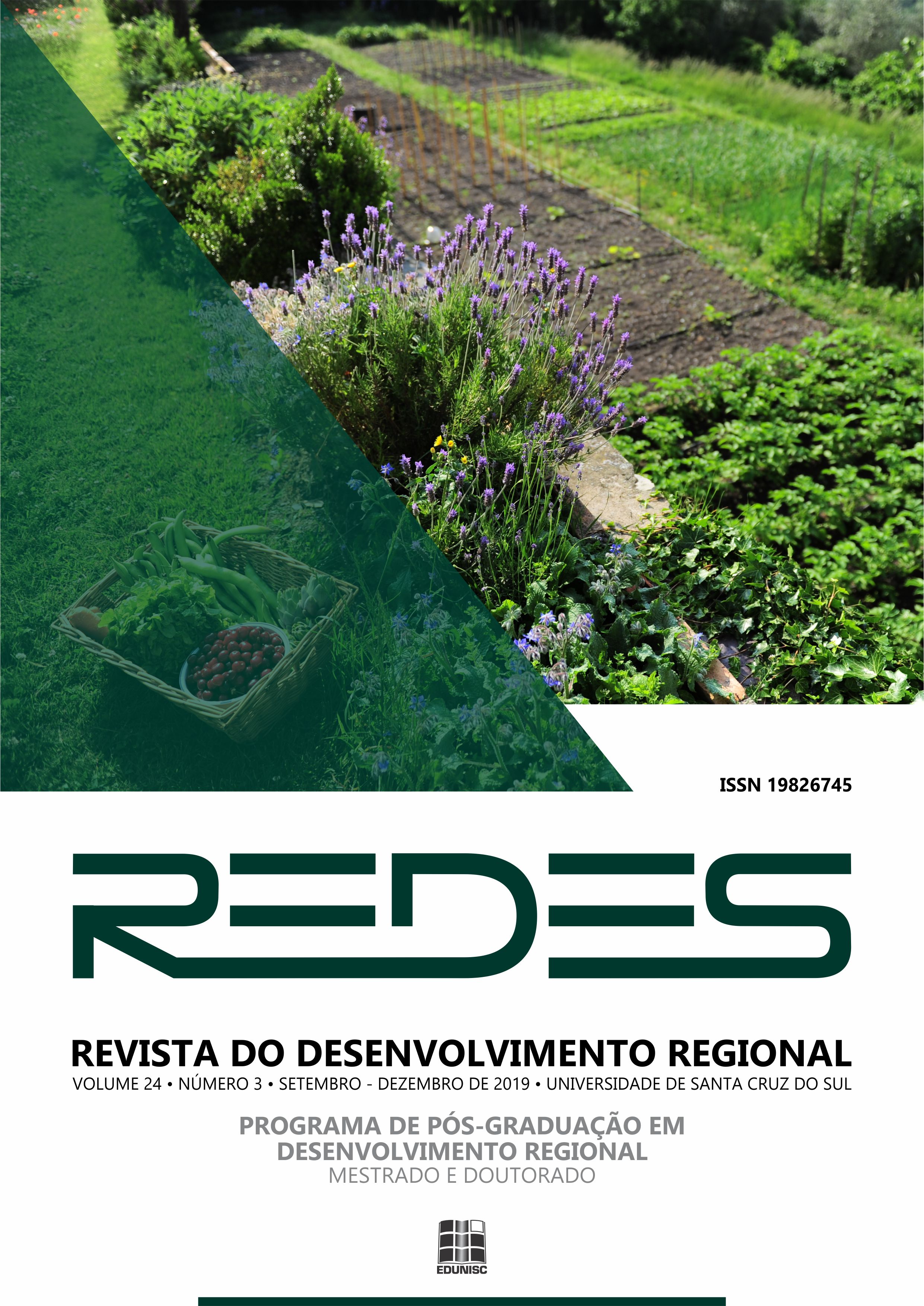O processo de especialização produtiva dos agricultores familiares da Zona Sul do Rio Grande do Sul através do Pronaf-custeio
DOI:
https://doi.org/10.17058/redes.v24i3.14001Palavras-chave:
Desenvolvimento Rural. Agricultura familiar. Pronaf. Especialização Produtiva.Resumo
A pesquisa tem como foco apontar o contexto do crescimento da soja na Zona Sul a partir da análise do Programa Nacional de Fortalecimento da Agricultura Familiar (Pronaf) e dos valores financiados pelos contratos firmados na região. Utilizando-se da Matriz de Dados do Crédito Rural (MDCR) e da Produção Agrícola Municipal (PAM), é possível verificar as mudanças da produção agrícola regional e seus impactos nos agricultores familiares. Uma política pública como o Pronaf tem o objetivo de fortalecer o pequeno produtor rural e, por consequência, diminuir a especialização produtiva reduzindo as desigualdades na agricultura brasileira. Entretanto, a atuação do programa não segue para este caminho. Nota-se que os contratos analisados indicam o afastamento das premissas definidas na criação do Pronaf em 1996. Dessa forma, o programa colabora para o aprofundamento das desigualdades na agricultura familiar tendo como principal fenômeno o afunilamento da produção agrícola local nas lavouras de soja resultando na especialização destes agricultores.Downloads
Os dados de download ainda não estão disponíveis.
Downloads
Publicado
2019-09-03
Edição
Seção
As (re)configurações rurais e urbanas na alimentação e a perspectiva territorial
Licença
A submissão de originais para este periódico implica na transferência, pelos autores, dos direitos de publicação impressa e digital. Os direitos autorais para os artigos publicados são do autor, com direitos do periódico sobre a primeira publicação. Os autores somente poderão utilizar os mesmos resultados em outras publicações indicando claramente este periódico como o meio da publicação original. Em virtude de sermos um periódico de acesso aberto, permite-se o uso gratuito dos artigos em aplicações educacionais e científicas desde que citada a fonte conforme a licença CC-BY da Creative Commons. Creative Commons Atribuição 4.0 Internacional.
Creative Commons Atribuição 4.0 Internacional.
Como Citar
Conterato, M. A., & Bráz, C. A. (2019). O processo de especialização produtiva dos agricultores familiares da Zona Sul do Rio Grande do Sul através do Pronaf-custeio. Redes, 24(3), 12-34. https://doi.org/10.17058/redes.v24i3.14001



